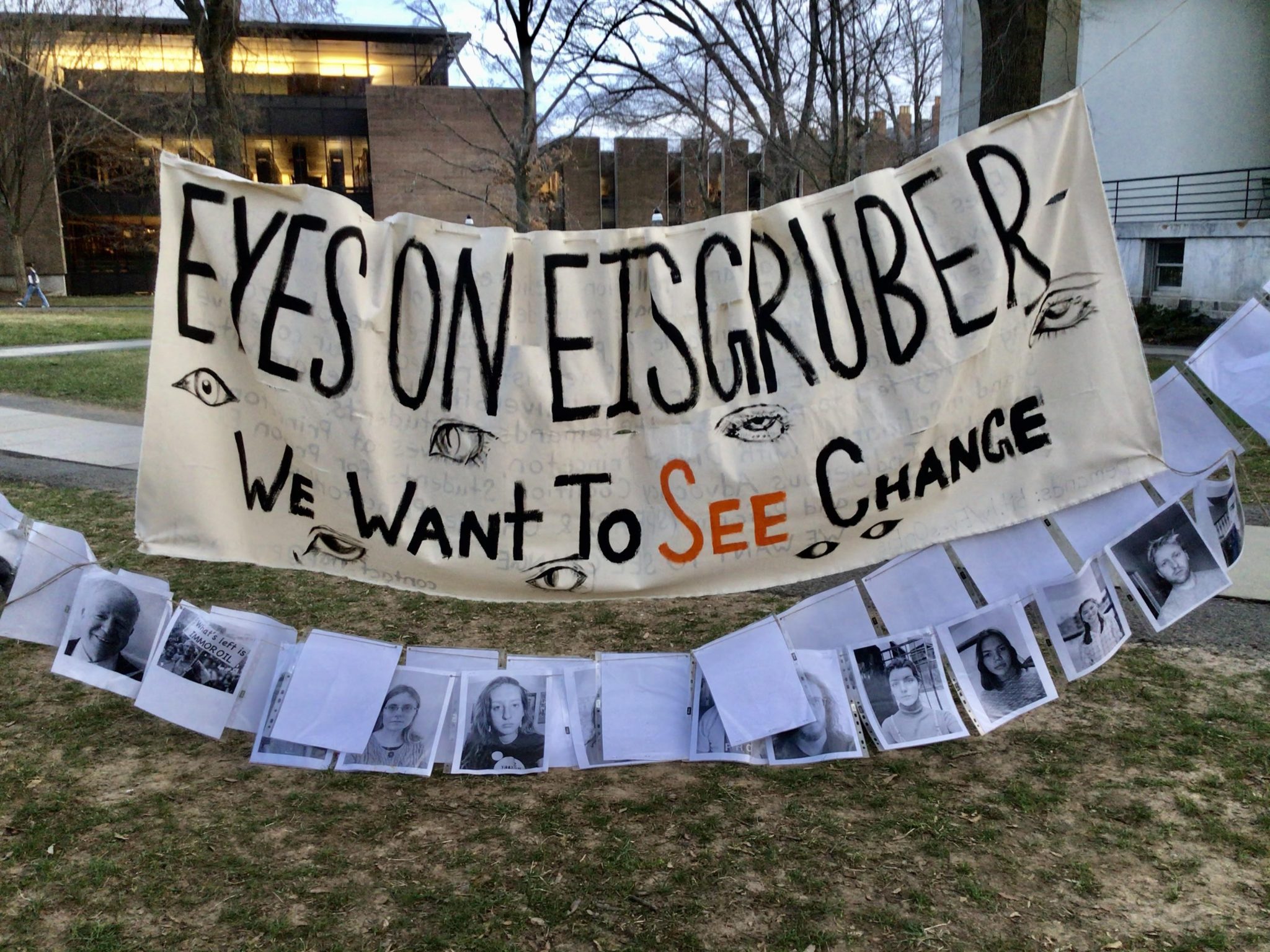Divest Princeton, Natives at Princeton, the Princeton Indigenous Advocacy Coalition and other student organizations installed an art project on March 22 calling on Princeton University administrators to fulfill the groups’ various demands.
The installation consists of a banner with the tagline “Eyes on Eisgruber,” referring to university President Christopher Eisgruber, and photos of current student activists and alumni, as well as a folder containing copies of demands from each of the collaborating student groups.
“We’re calling for divesting endowment, as quickly as possible, of all direct and indirect holdings of fossil fuel companies,” said Hannah Reynolds, a student activist with Divest Princeton and one of the chief planners of the project.
According to Reynolds, activist groups at the university have faced challenges organizing protests in the face of COVID-19 guidelines. She said the art project provides a useful alternative for physical gatherings, and may be more engaging for students passing by.
“If there’s a protest you might hear people chanting, but if you’re walking by you might not really know what that’s about,” she said. “But if you see this really haunting image of all these different people who are all standing in solidarity, this art project that’s kind of intriguing and a catchy slogan, then you might be inclined to actually look into that.”
In addition to Divest Princeton’s demands, the installation contains demands from four other student groups. Some of these demands include calls for prison divestment by Students for Prison Education, Abolition, and Reform (SPEAR) and for a Native American studies program by Natives at Princeton and the Princeton Indigenous Advocacy Coalition.
“We want to be able to recognize these histories and this knowledge as legitimate in academia,” said Keely Toledo with Natives at Princeton. “It’s that push to really bring it up and be like, look, Native American studies are important. A lot of other universities around the country have these programs.”
Reynolds said the groups chose to collaborate because of the overlap in their demands. She pointed out the similarities between Divest Princeton’s demands and SPEAR’s calls for prison divestment, and claims that other groups share similar concerns.
“I think that a lot of these issues are really intersectional,” she said. “With Natives of Princeton, a lot of what they’re talking about is inclusivity, and how can you be inclusive when your investments are in companies that are egregiously polluting these frontline communities, oftentimes Native communities?”
Other activists echoed this emphasis on collaboration as an important function of protest. One involved organization, Change Princeton Now, has previously compiled student activist demands and is collaborating on the art project to once again amplify other groups’ concerns.
“I think it’s also to build solidarity among each other,” said Abyssinia Lissanu, a graduate student with Change Princeton Now. “Oftentimes at Princeton it can feel like you’re kind of organizing stuff within your specific organization or group, and not as much like you’re having a wider impact.”
Princeton University administrators have not formally acknowledged the project, and the university spokesperson has not yet responded to requests for comment.
“We really are calling out Princeton to take urgent action on all of these serious issues,” Reynolds said. “Student activists have made demands, and we’re waiting.”
Emily Willford, Class of 2024, is a member of the Princeton University Press Club.

